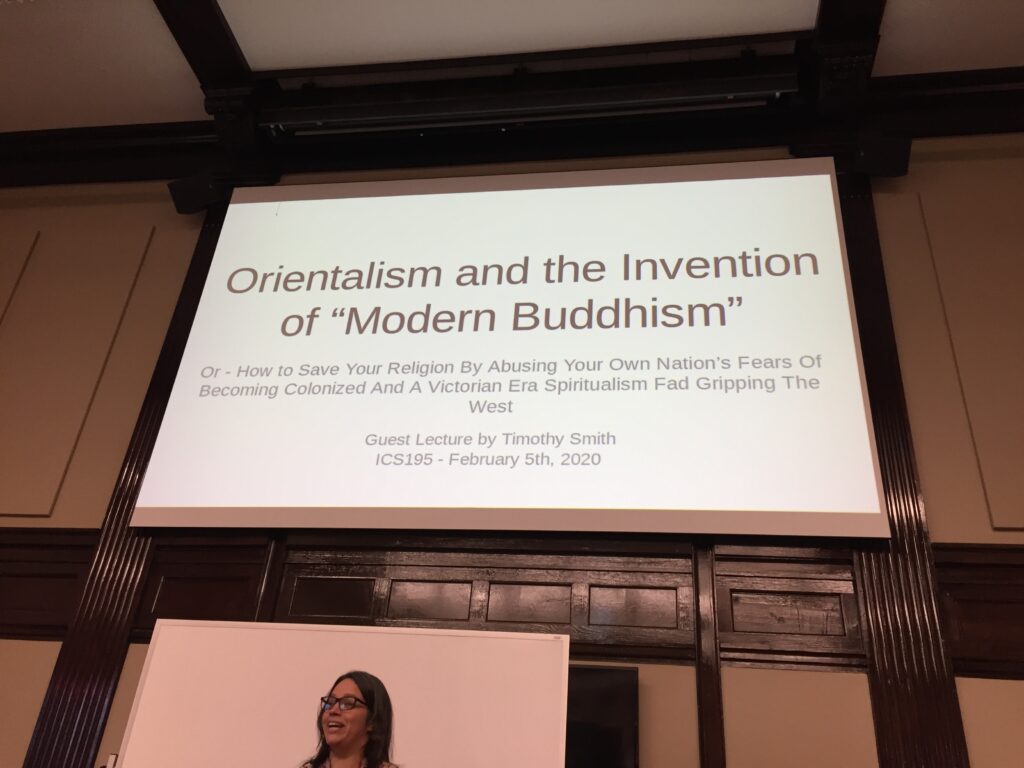What does a liberal art education mean and what are the benefits of pursuing it? How does a liberal art education help a person thinks for themself? Della Sihite, columnist for the North and Latin America, tackles those questions in this article and offers her perspective on how her four years at Duke University have changed her for the better.
****
I am graduating from Duke University in less than two weeks, and I’ve been thinking a lot about how much I’ve changed as a person. Four years ago, I was watching Legally Blonde and dreaming about being Elle Woods, and now, I can say that I’ve lived the quintessential American college experience, from the basketball games and parties to the old libraries and gothic architecture.

When I first got into Duke, many of my relatives expressed their concerns with me going abroad – as an only child and a daughter, I was expected to stay home and take care of my parents. In addition, they were worried about how the “liberal” American culture would corrupt my morals. These past four years at Duke have seen my highest highs and my lowest lows, but as a result of my education, I now have a stronger sense of who I am.
I was initially drawn to American universities because of their liberal arts curriculum, which means students have to take a wide range of classes to graduate, ranging from arts, history, and literature to mathematics, natural sciences, and social sciences. Thus, even as a computer science and economics major, I have taken classes in philosophy, creative writing, and international comparative studies. When someone asks me what I learned from those classes, it’s difficult to pinpoint the exact “knowledge” that I’ve gained, but these classes have changed the way that I view the world. And that, in my opinion, is the most valuable part of my education.
In the second semester of my freshman year, I took a class called “Comparative Approaches to Global Issues”. I expected the class to be an international relations class discussing the current state of global politics, but in reality, it could not have been more different. The class began by unpacking what “global” meant and reading about the origins of nationalism from Benedict Anderson’s Imagined Communities. We moved onto imperialism and colonialism, examining the U.S. as a case study of settler-colonialism and African countries as examples of Frantz Fanon’s idea of the “colonial mentality”. Finally, we discussed the way popular culture shapes our understanding of the world, such as how “kawaii” culture in Japan perpetuates sexism and consumerism.

During another semester, I took an “Intro to Philosophy” class. Never has a class made my brain hurt more, but never has writing an essay felt more rewarding. We asked big questions: what defines someone’s personal identity, when can we consider evidence sufficient to make a decision, is free will required for moral responsibility? Our essays attempted to reason through these questions by constructing arguments based on premises and acknowledging the conditions in which these arguments are false. This class taught me that there is no right answer to any of these, and that the value lies in thinking about them. As Bertrand Russell says, the value of philosophy is to be sought in its uncertainty.
These classes have taught me to question everything and form my own opinion about the world. Growing up in Indonesia, I was raised in an environment where “the West” is glorified and romanticized, and I believed this as fact. Now, I know that this stems from Edward Said’s idea of “orientalism”, which suggests that “the West” asserts itself as rational and powerful by portraying “the East” as exotic and vulnerable. In addition, if the philosophers I’ve read agree on one thing, it is that we cannot be certain about anything, and that everything is worth contemplating.
From my liberal arts education, I have learned to empathize with people from different backgrounds and care about issues even if they don’t directly affect me. In addition, they have encouraged me to approach my computer science and economics classes more holistically. Economics 101 will tell you that the optimal wage is where labor supply meets demand, but what does this mean for worker’s rights and minimum wages? Computer science classes have taught me how to design and analyze algorithms, but how do we ensure that our algorithms aren’t biased towards racial and gender minorities? The American education system is not “liberal” or “corrupt” – it simply encourages you to think for yourself, and I am a much better person because of it.








